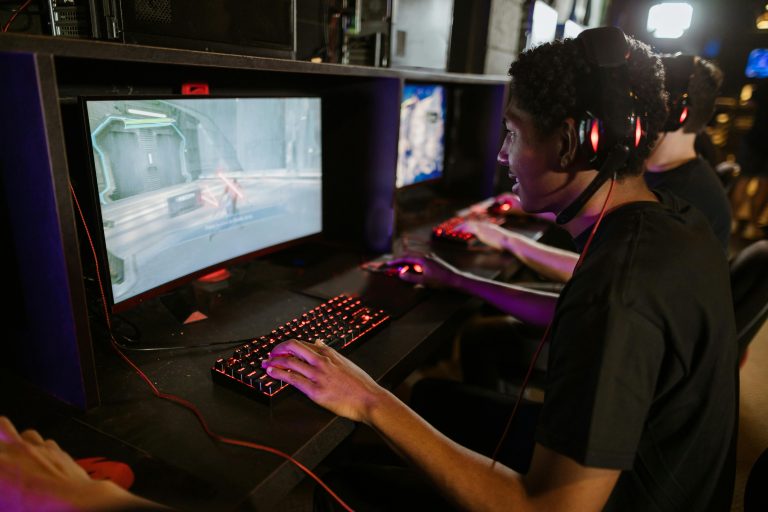
For decades, the landscape of interactive entertainment has been clearly defined: you buy a game, you play it, you finish it (or you don’t), and you move on. But a new, all-encompassing concept is crashing into the collective consciousness of gamers and tech enthusiasts alike—the Metaverse. Promising a persistent, shared, and interconnected virtual universe, the Metaverse aims to blur the lines between gaming, social networking, and even the economy. This ambitious vision inevitably raises a pressing question: is this the beginning of the end for traditional, self-contained video games, or will the two coexist and evolve together? The future of play is at a fascinating crossroads, and the answer is more nuanced than a simple yes or no.
Defining the Battlefield: Metaverse vs. Traditional Gaming
Before we can predict the future, we must understand the present. Traditional gaming refers to the model we all know. It involves discrete experiences—whether a single-player narrative like The Last of Us or a competitive multiplayer match in Call of Duty. These games have a clear beginning and end, are often played in isolated sessions, and are primarily focused on a curated experience designed by the developers.
The Metaverse, while still a concept in its infancy, envisions something far grander. Think of it as a convergence of physical and digital reality—a persistent, live digital world that exists whether you’re logged in or not. It’s not just one game but a network of interconnected experiences. Here, your identity, assets (like digital clothing or land), and currency are portable across different virtual spaces. It emphasizes user-generated content, a functioning economy, and social interaction as its core pillars, with games being just one activity within this vast digital society.
The Allure of the Metaverse: Why It’s a Powerful Vision
The potential of the Metaverse to reshape entertainment is undeniable. Its proponents point to several compelling advantages that traditional gaming struggles to match.
Unprecedented Persistence and Continuity
In the Metaverse, your actions could have lasting consequences. Building a business, forging a reputation, or acquiring a rare virtual item would carry weight and history, creating a depth of investment that most traditional games cannot offer.
A True Digital Economy
Through NFTs and blockchain technology (though controversial), the Metaverse promises true digital ownership. Players could buy, sell, and trade assets across different platforms, potentially earning real-world value from their virtual endeavors. This creates a powerful incentive for participation beyond mere entertainment.
Social Interaction on a Grand Scale
The Metaverse is inherently social. It aims to be the next evolution of the internet, a place where you don’t just consume content but live within it with others. Concerts, meetings, classes, and casual hangouts could all happen in immersive virtual spaces, making gaming a side effect of socializing, not the sole purpose.
Why Traditional Gaming Isn’t Going Anywhere
Despite the hype, the traditional gaming model possesses inherent strengths that the Metaverse cannot easily replicate. Declaring it obsolete would be a grave miscalculation.
The Power of a Curated Narrative
Some of the most beloved gaming experiences are tightly crafted stories. Games like Red Dead Redemption 2 or God of War are lauded for their emotional depth, cinematic presentation, and precise pacing—elements controlled by masterful storytellers. The open-ended, user-driven nature of the Metaverse is antithetical to this kind of focused, authorial vision.
Accessibility and Simplicity
Picking up a controller and jumping into a 30-minute match is easy. The proposed Metaverse, with its complex economies, identity management, and always-on nature, presents a significant barrier to entry. Traditional games offer a clear, contained escape, not a second life that demands constant attention and management.
Technical and Philosophical Hurdles
The Metaverse faces monumental challenges: creating interoperable standards between tech giants who prefer walled gardens, overcoming immense hardware requirements, and addressing serious concerns about privacy, security, and user safety. These are not simple problems to solve. Traditional games, by comparison, are a known and reliable quantity.
The Most Likely Future: Convergence and Coexistence
The narrative isn’t about replacement; it’s about evolution and integration. We are already seeing the seeds of this future being planted. Traditional games are adopting Metaverse-like features.
- Live Service Games: Titles like Fortnite and Roblox are no longer just games; they are platforms. They host concerts, brand experiences, and countless user-generated modes, effectively functioning as proto-metaverses within their own ecosystems.
- Social Hubs: Games like Final Fantasy XIV have sprawling social hubs where players gather, not just to raid but to chat, role-play, and form communities—a core Metaverse principle.
- Cross-Platform Progression: The idea of taking your identity and unlocks across devices is a step towards the interoperability the Metaverse promises.
Rather than a single, monolithic Metaverse replacing all games, the future will likely be a spectrum. There will be dedicated, narrative-driven traditional games for those seeking a curated experience. Alongside them, there will be large-scale, persistent platform games that offer Metaverse-like features. These platforms may eventually become interconnected, allowing for a degree of asset and identity portability that defines the true Metaverse dream.
Conclusion: An Expanded Universe of Play
So, will the Metaverse replace traditional gaming? The evidence suggests no. Instead, the concept of the Metaverse will absorb, influence, and expand upon what traditional gaming has built. It represents a new frontier, a new set of tools and possibilities for interaction, community, and creation. Traditional games will continue to thrive by doing what they do best: delivering polished, compelling, and finite experiences. The future of play is not a battle with one winner, but an expansion of the playing field itself. We are moving towards a world where you can get lost in a breathtaking story one hour and then attend a virtual concert with friends from across the globe the next. The definition of “gaming” is simply getting bigger, and that’s an exciting future for everyone.






